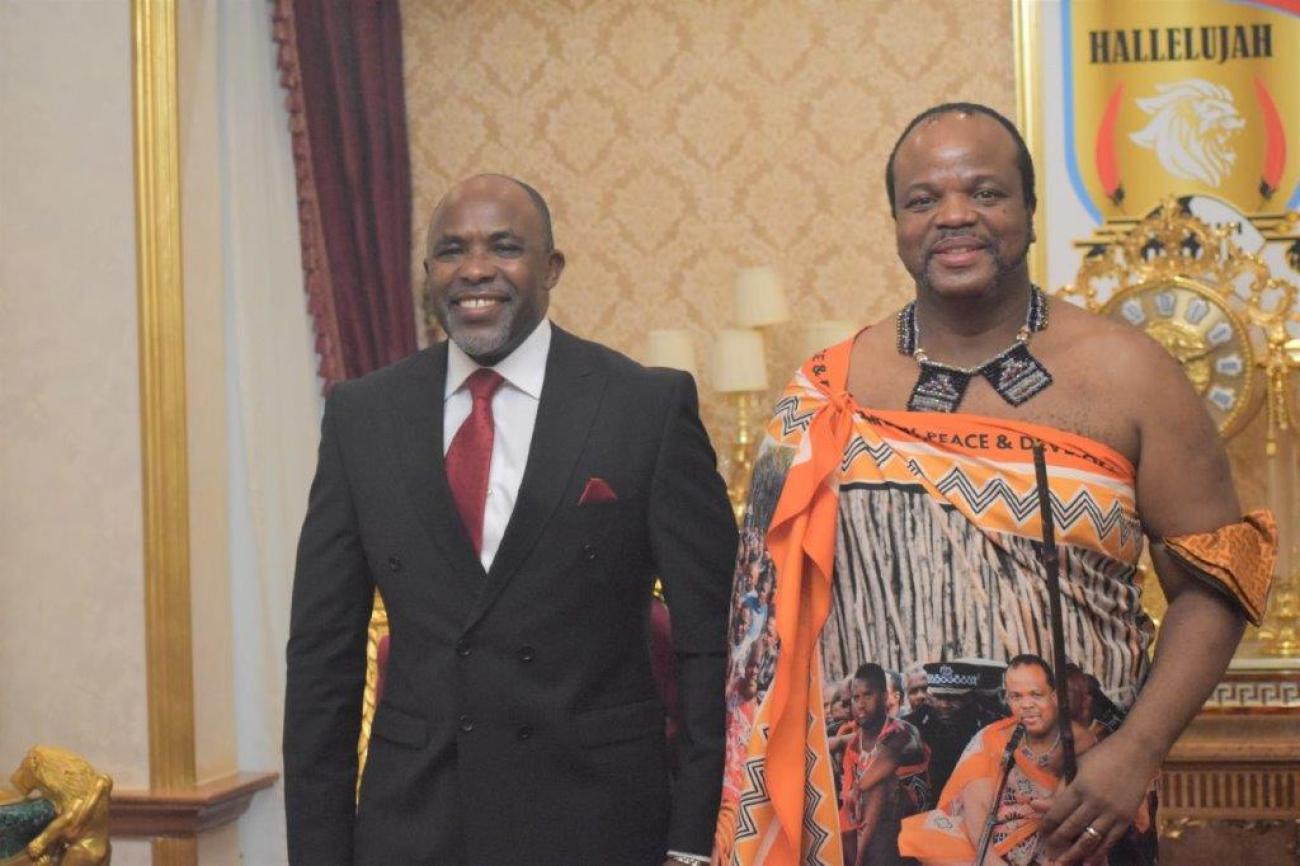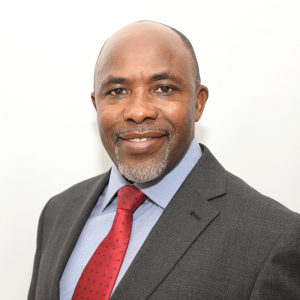In May last year, I had the honour to present my letters of credence to His Majesty King Mswati III, marking the beginning of my tour of service as the United Nations Resident Coordinator and representative of the UN Secretary-General in the Kingdom of Eswatini. The ending of one year and the beginning of another is a good time to reflect on the journey travelled and to look ahead.
The reflection must begin with why I and the UN are here in the first place. We are here to support the development aspirations of the people of Eswatini, guided by the national priorities identified by His Majesty’s Government, the Global 2030 Agenda of the Sustainable Development Goals, and the agreed Cooperation Framework in which the UN committed to contributing towards “A prosperous, just, and resilient Eswatini where no one is left behind” in the period 2021-2025. My role as the Resident Coordinator is to lead and support the integration of the development activities of the 17 resident and non-resident UN agencies active in Eswatini. Throughout the year, I reminded myself regularly of this UN mission and my role in it, as I do of the fact that, this year, we are half-way through implementation period of the Eswatini Cooperation Framework and have less than 7 years left to achieve the 2030 Agenda. We must keep the promise of the SDGs.
Without a doubt, the past year has been a year of learning and eye-opening encounters and conversations with the Kingdom, its leaders and people and its development vision. I have enjoyed my encounters with the truly warm and engaging Emaswati, at all levels, listening to your stories and aspirations and admiring the ambitious development vision.
I have felt privileged to be surrounded by the incredible beauty of this country, its deeply rich culture and traditions and to acknowledge its natural assets, and everything that indicates towards a potentially exciting future within a dynamic region. I remain particularly enthralled by the pride, total devotion and effortlessness with which Emaswati have retained and celebrate their cultural identity.
Arrived
I arrived in the Kingdom at a challenging time globally and nationally, with multiple crises affecting us all. These crises are pushing an estimated 88 to 155 million people around the world into poverty. On the African continent, the average public debt increased to over 60 per cent of GDP and will likely remain at this level in 2023. Such a debt challenge was last seen in the early 2000s, just before the launch of the Heavily Indebted Poor Countries Initiative. In Eswatini, recovery from the social and economic impacts of these crises has been slow. GDP growth was estimated at 0.4 per cent in 2022, compared to 7.9 per cent in 2021.
The crises we face have created greater vulnerability to potential future shocks and significantly increased obstacles that the world, and in particular developing nations like Eswatini, face in achieving the Sustainable Development Goals by 2030. Worryingly, crises such as those that we have faced have ways of creating new ones. It behooves all of us to remain focused on our goals and sustain our peace and stability to prevent this from happening.
As I have deepened my understanding of my new home and listened to the sometimes fiercely diverse opinions and proposed solutions, two thoughts stayed in my mind. One is a remark I made when presenting my letters of credence to His Majesty the King, that ‘the family is like a tree, it can bend but must not break.’ The second is the adage that the pain of childbirth is to be preferred to the silence of the graveyard. In sum, societies may have divergent views, and it is ok to disagree as, indeed, societies grow through a confrontation and iteration of ideas (not violence), a good idea for a better one, through consensus. I believe that Eswatini aspires to be better in all ways and this requires the goodwill and unity of purpose of everyone to achieve.
I commend the Government for the efforts made to recover and return to a development path including the articulation of a private sector-led Post COVID-19 Economic Recovery Plan, the development of a new National Development Plan for 2023-2028 that seeks a proactive path to development, while addressing the impacts of COVID-19 pandemic, Cyclone Eloise and the civil unrest of 2021 and places governance, political and economic, at the core of the effort.
Likewise, I congratulate Eswatini on the Voluntary National Review (VNR) of its progress in implementing the 2030 Agenda, and for its Commonwealth Champion Role, along with Kenya, on Energy Literacy and Geothermal Power.
Recently, I had the honour to witness the launch of the $1.3 billion implementation plan of the Nationally Determined Contributions within the framework of the Paris Agreement on combating climate change. I also witnessed the validation of Eswatini’s National Strategy and Implementation Plan for the Africa Continental Free Trade Agreement (AfCFTA). More recently, I witnessed the launch and blessing by His Majesty King Mswati III of three new significant investments in the country. These developments are a commendable reflection of Eswatini’s forward thinking in two ways. First, that all nations must take decisive action to avert the impending climate catastrophe. Second, that in the changing development landscape marked by global financial upheavals and shrinking development support, private sector-led trade and investment are the path to creating employment, improving lives and sourcing development financing. Continuously improving the competitiveness of the business environment is key. Good and robust growth would generate resources to enable better programmes to cushion those most vulnerable.
Invested
In 2022, the UN invested a total of USD 21.7 million (E 391 million) towards the implementation of the UN Sustainable Development Cooperation Framework (UNSDCF) 2021-2025 in four key outcome areas: (i) Promoting Sustainable & Inclusive Economic Growth; (ii) Investing in Human Resources & Social Development; (iii) Accountable Governance, Justice and Human Rights and (iv) Strengthening Natural Resource Management, Climate Resilience & Environmental Sustainability.
However, the value of the UN in Eswatini is far beyond the financial resources invested. It is also in the catalytic and multiplier effect of that investment in changing people’s lives in the long-term. It is the UN’s convening role, together with Government, to identify development challenges and sustainable solutions together. It is in the strategic advice on best practices, policies and expertise that the UN brings to bear onto Eswatini’s development processes from its presence around the world.
I would like to pay tribute to all our partners, including the Government, civil society, international partners, the private sector, persons with disabilities, youth, women and many others – for the strong partnerships, solidarity, determination and support over the past year which resulted in the milestones achieved. I am grateful to my UN colleagues, in particular to the heads of the 17 agencies, funds and programmes working in the Kingdom, for their dedication to delivering results to improve the lives of Emaswati.
Looking forward to my second year, I am mindful of the short time remaining to 2030, the deadline set by Member States to achieve the Sustainable Development Goals.
First, while we have lost time and regressed globally in the targets set, we must not lose hope. On the contrary, we must remain driven and focused on the headline targets to end poverty, reduce inequality and protect the environment by 2030, recognizing that the Sustainable Development Goals are founded upon the Universal Declaration of Human Rights whose 75th anniversary we are celebrating this year.
Second, the UN will seek to provide quality strategic advice to Government to both navigate the multiple global shocks whose impacts are likely to continue being felt, and in exploiting the opportunities available, including in climate financing and improving the investment climate.
Third, bringing the UN’s comparative advantages to jointly respond to pressing challenges confronting young people and at-risk groups, responding to the climate crisis, and promoting entrepreneurship.
Lastly, the UN will support Eswatini to prepare for, strongly contribute to, and deliver on commitments made during key global summits, including the Transforming Education Summit, Food Systems Summit, the climate conferences, the SDG Summit, and others.
As we look back on this last year, we may feel overwhelmed by what we have faced and perhaps even feel worried by what may lie ahead. I would like to draw on the inspiration of your courage, hope and dreams, and to urge that we stand strong, hold fast onto our dreams and aspirations, march forward while leaving no one behind.



















